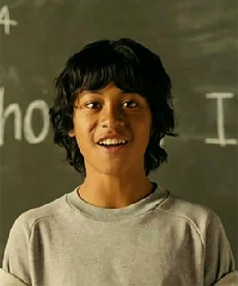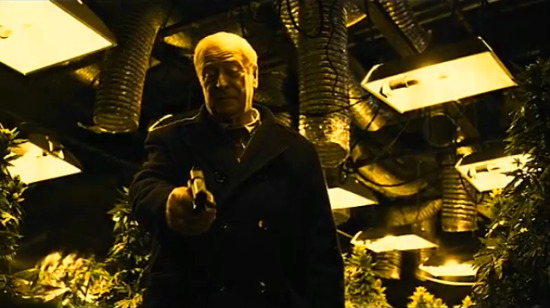
As Tomorrow When the War Began continues to rake in coin at the box office, one question remains firmly unasked by the mainstream media: isn’t having Australia invaded by a largely Asian force kind of, well, racist? Well, maybe not as racist as some of the alternatives: having the invaders come from the Middle East would be extremely inflammatory, thanks to both The War on Terror and the current hysteria around so-called “boat people”, while having the invaders come from Africa… yeah, that’s not a good idea. Though it’d be deserved after the Hey Hey it’s Saturday ‘blackface’ skit.
Having the bad guys be sinister white folk is the usual Western approach – evil Brits are usually the go-to, but Russians, South Africans, French and even Germans also work. But here that’d just raise more questions: if the invaders were Americans (or even British, to a lesser extent) you’d have a blatant Iraq war metaphor, and while that’d be interesting, it’d also make the film first and foremost about the Iraq war. As for other white nationalities… well, why wouldn’t they just migrate here? It’s not like the White Australia policy tried to keep them out (so long as they spoke English).
That’s what makes the choice of nationalities here so interesting: it actually says something about Australian society. Having the invaders be robots, or Nazis, or aliens, or some other fantasy group would certainly work as far as the central thrust of the film goes – what would you do, Mr or Ms Australian teenager, if your country was invaded? – but that’s all they’d bring to the table.
Having Asian invaders feels racist because is the light of Australia’s history it kinda is. But that’s a good thing: pulp fiction – which this most definitely is – gets its power from saying things “quality” entertainment is too classy to say out loud. Dealing with big issues in a clumsy, unfocused way is what trash does best; rather than condemning TWTWB’s racism, we should applaud it for making it an up-front point of discussion.
More importantly, the shock of realization you get when you discover that the invaders are Asian – that on one level this actually is the nightmare of a thousand Australian racists come true – is something to be applauded. What’s the alternative? Bland, generic story-telling that tells soothing fantasies about who we are. A film that refuses to make us think past “ooh, explosions”.
If nothing else, having the heroes of TWTWB fighting an Asian invading force makes this both easier to dismiss as a racist fantasy (at least the racism is obvious – it’s not like they’re the racial stereotype aliens in some science fiction films) and harder to accept as a jingoistic tale of national pride. Against robot aliens this’d be a simple tale of “we can’t be beaten” (with Angry Anderson singing same on the soundtrack); against a race traditionally demonized (to varying extents) in Australian culture over the years, it’s a little more complicated. And isn’t complicated story-telling a good thing?
Anthony Morris




















